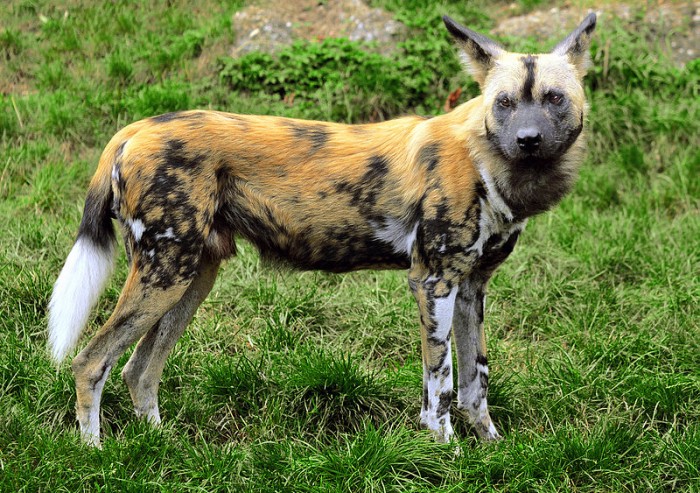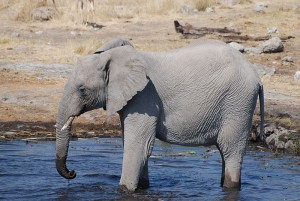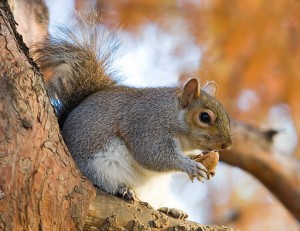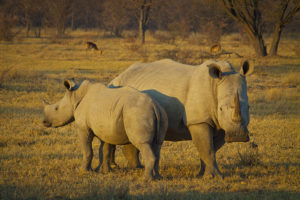Hot Dogs
Climate change may be harming the future of one of the world’s most endangered predators – the African wild dog. As they spend less time hunting on days with higher temperatures, less food is brought back to feed the pups and their survival declines.
 Image: By Michael Gäbler (Own work) [CC-BY-3.0 (http://creativecommons.org/licenses/by/3.0)], via Wikimedia Commons
Image: By Michael Gäbler (Own work) [CC-BY-3.0 (http://creativecommons.org/licenses/by/3.0)], via Wikimedia Commons According to one of the first studies on the impact of shifting temperatures on tropical species, climate change may be harming the future of African wild dogs. The survival of their pups is in jeopardy, because fewer are raised when temperatures are high. As African wild dogs are already listed as Endangered by the IUCN Red List, this has worrying implications for the future of one of the continent’s iconic species.
The research, published in the Journal of Animal Ecology, is the result of three concurrent studies, led by the Zoological Society of London, the Botswana Predator Conservation Trust and the African Wildlife Conservation Fund. These studies monitored a total of 73 wild dog packs at sites in Kenya, Botswana and Zimbabwe, with a combined total of 42 years’ worth of data.
Tracking the dogs with high-tech collars, the scientists found that wild dog packs spent less time hunting on hot days. And when the packs tried to raise pups in hot weather, they experienced a higher pup mortality rate. This may be because, with less time spent hunting, less food was brought back from the hunts.
At the site in Botswana, temperatures increased steadily over 24 years of monitoring there. The average maximum daily temperature during the pup-rearing period was roughly 1oC higher in the first 12 years of monitoring than in the second 12 years. Over the same time period, the average number of pups surviving per pack per year fell from five to three.
The study’s lead author, Professor Rosie Woodroffe of the Zoological Society of London’s Institute of Zoology, said: “Our study shows the truly global impact of climate change. When most people think about wildlife in a changing climate, they think of polar bears clinging to melting ice, but even species who have adapted to tropical weather are being impacted by the changes to their environment. Worryingly, this new threat may be affecting wild dogs deep inside wildlife areas where we would expect them to be protected from human impacts. With habitat fragmented and destroyed in cooler areas, wild dogs have literally nowhere to go. Sadly, climate change may bring extinction a step closer for this amazing species. Now our team at ZSL is focused on identifying conservation actions which might reduce these climate impacts on wild dogs, and working out where they are most needed.”
African wild dogs are one of the world’s most endangered carnivores and their populations are declining. Estimates suggest that fewer than 700 packs currently remain in the wild, numbering around 6,600 individuals. Their numbers are falling due to major threats such as viral diseases, for example rabies and distemper, competition with larger predators like lions, conflict with people whose livelihoods rely on agriculture and livestock so kill wild dogs, and our growing numbers and expanding activities decrease the habitat available to them.
Work to reduce conflict with humans and to create and protect corridors to link populations of wild dogs is essential, and this new research will now also prompt further investigation into the impact of the planet’s biggest threat of all – climate change.





No comments yet.